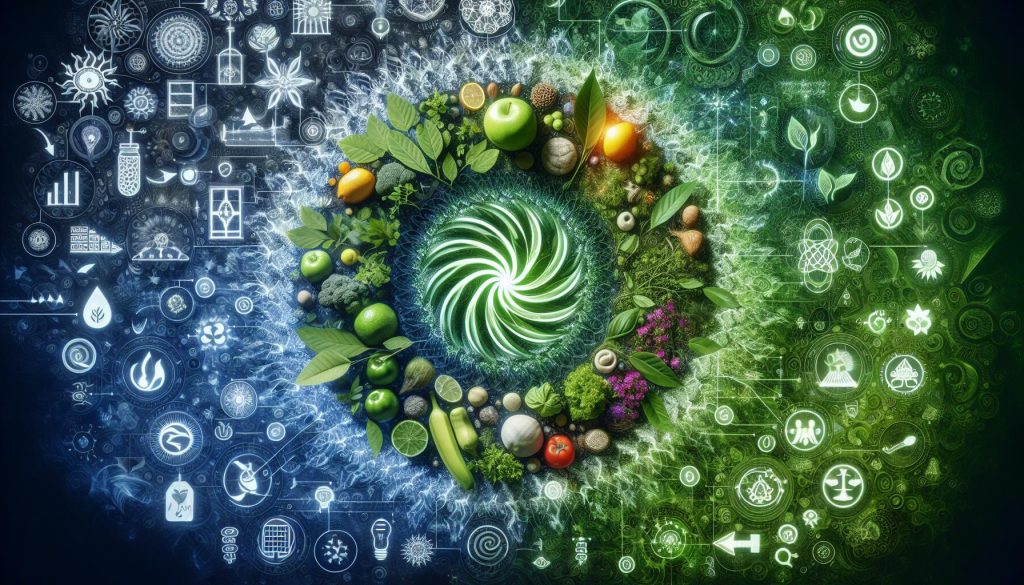
Introduction
“Is an herbivorous diet more energy-efficient?” is a query leaving many on tippy toes, especially the health fanatics and environmentalists among us. The quick answer to this is, yes, embracing an herbivorous diet is indeed more energy efficient. With the world’s energy crisis and environmental sustainability on the line, the implications of shifting to an herbivorous diet are fascinating and deserve a deep dive. In this article, we’ll delve into the inner workings of the herbivorous diet, proudly peeling back layers of facts, stripping ourselves of myths, and discovering the trouncing truth – why a leaf-lover’s lifestyle leads to a lesser drain on our resources.
A Sustainable Stroll Down the Food Chain
The logic behind a plant-based diet being more energy-efficient circles back to the food-web theory. On the universal dining table known as the food chain, energy passes from one tier to the next, and with every transaction, loses a bit of its original size. It’s all about the green giants – plants, the marvelous photosynthetic machines, that are the primary providers of energy on this food chain.
Capital Conservation with Herbivorous Habits
Let’s put it simply. When we eat plants directly, we tap into the energy source firsthand, soaking up all the reserve. Compare this to eating animals who in turn ate those plants – you’re using far more resources for a far smaller energy return.
Running Rings Around Resource Use
It’s no tall tale that a meaty meal takes more from the environment than its plant-based peer. Adopting the herbivorous lifestyle, you’re choosing an avenue that appreciates resources and dials down demand. Grain, water and land – all go into maintaining livestock, and their conversion into dietary energy and protein isn’t exactly efficient.
Feed the World with Fewer Fields
From feeding livestock to feeding humans directly, the phenomenon of energy transfer comes into the limelight again. The pro-plant path, an upshot of being low on the food web, empowers us to achieve more with less, feeding more mouths with fewer fields.
The Wheel of Water and Waste
Water, a crucial cog in the wheel of life, is used more prudently in plant growing. The livestock industry, on the other hand, is thirsty work. Not to mention, manure management and its maddening impact on our fresh waters is a worry with meat.
A Less Wasteful Way
Choosing chomping on carrots over chewing on chicken not only lessens our water worries but also results in reduced waste generation. The herbivorous diet exhibits a sustainable trait, in stark contrast to a carnivorous one that astonishingly usurps an unjust amount of resources.
Conclusion
It’s clear as crystal – a plant-based diet is, indeed, more energy-efficient. It’s a gentle nod towards Mother Nature, a promise to use resources responsively, and a choice that nudges us closer to creating a sustainable future. After all, isn’t the notion of doing more with less the recipe we need for a healthier, greener tomorrow?
Frequently Asked Questions
1. How does an herbivorous diet decrease greenhouse gas emissions?
The livestock industry is one of the major contributors to greenhouse gases. Switching to a plant-based diet reduces the demands for livestock, thereby reducing related emissions.
2. Can a shift to a plant-based diet help in environmental conservation?
Absolutely. A plant-based diet requires fewer resources such as land, water and energy compared to a meat-based diet.
3. How can a plant-based diet help in dealing with global food shortages?
Plants are first in the food chain, providing the most energy. More people eating plants means the energy can feed more people from the same amount of resources.
4. Can I get all the necessary nutrients from a plant-based diet?
Yes, a well-planned plant-based diet can provide all the necessary nutrients you need for healthy living.
5. Does a plant-based diet use less water compared to a meat-based diet?
Yes, growing plants for food uses much less water than raising livestock. Not to mention, it leads to far less water pollution.



